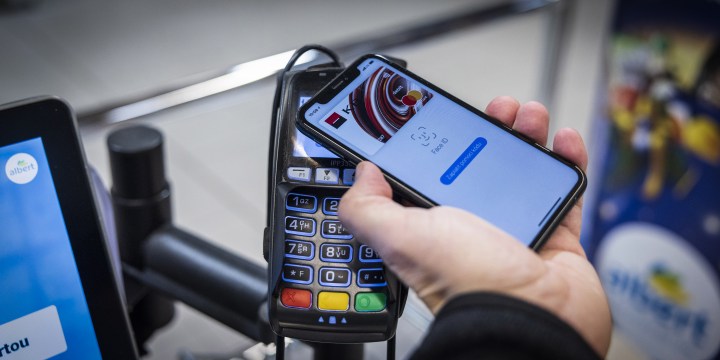PAYMENT SUCCESSFUL?
SA consumers become more tech-savvy, but payment security concerns remain

A groundbreaking study by World Wide Worx and partners reveals that South Africa’s booming online retail sector hit R71-billion last year, hindered by payment failures and credit card woes, as consumer trust in online shopping remains a cautious 18.6%.
A landmark study released today by World Wide Worx, in partnership with Mastercard, Peach Payments, and Ask Afrika, reveals that although shopping in South Africa’s online retail sector surged to R71-billion last year, it was dragged down by operational challenges including payment failures (18.2%) and cart abandonment due to declined credit cards (52.2%).
The TGI Survey, conducted among 16,000 South African consumers, found that only 18.6% regarded it as safe and secure to shop online. Gabriel Swanepoel, country manager of Mastercard South Africa, says collaboration has streamlined payment processes, making online shopping easier and more secure, increasing consumer confidence and contributing to this growth.
The rise of BNPL
Rahul Jain, chief executive officer of Peach Payments, stressed the importance of payment solutions. “The findings underscore how Peach Payments enabled the proliferation of new payment methods such as Buy Now Pay Later that meet the evolving demands of the consumer.
“This allows consumers to spend more online with greater confidence. Merchants are utilising our enterprise grade infrastructure to make their financial operations more efficient as they continue to capitalise on this growth,” he says.
The strong worry about financial security underscores the importance of regularly updating consumers about protective actions taken by retailers to safeguard their financial information. Jain believes this concern will lead to an increasing use of tokenisation, which is the underlying technology that enables the use of payment methods such as Apple Pay and Google Pay.
The leading causes of cart abandonment include credit card declines, which account for 52.2% of these incidents.
The key findings around payment gateways show a rise in alternative payment methods with broader adoption of alternative payment methods, such as vouchers (61.4%) and Buy Now Pay Later (47.4%). The use of digital wallets is also on the rise, with 36.8% of merchants currently using Apple Pay and/or Google Wallet.
The way BNPL works is that you buy now, receive the goods immediately and pay the balance over several payments. Paul Behrmann, founder and chief executive of Payflex, says the key difference is that this is not a traditional lending product with fees and interest charges.
“Typically, payments are structured over a six-week period. So, with Payflex, you would pay the first 25% today, the second 25% in week two, the third 25% in week four and the final 25% in week six. You can’t stretch the repayments to six months or a year. This matches with global models which tend to stick to a six-week repayment period. The idea is that buy-now, pay-later products are designed to meet a short-term need and to be repaid over the short term,” he says.
Float, a South African BNPL startup, recently raised $11-million from Standard Bank to support the launch of its card-linked instalment platform and accelerate growth over the next four years. However, Float chief executive Andrew Forsyth-Thompson has warned that irresponsible consumer use of BNPL does carry risks.
Read more in Daily Maverick: South Africans turn to online shopping, ‘buy now, pay later’ schemes to keep their heads above water
“When used responsibly BNPL can be useful. However, because these loans are generally not reflected in shoppers’ credit records and remain unseen by other BNPL providers, shoppers can accumulate multiple BNPL purchases and become over-indebted in a short time. Late fees and potential interest charges can also accumulate, creating a snowball effect of debt. What starts as a smart decision to spread out payments can quickly evolve into a financial burden that lasts well beyond the holiday season,” he cautions.
Float enables credit cardholders to divide purchases into interest-free, flexible monthly instalments, extending payment periods up to 24 months.
Move towards QR code payments and cryptocurrencies
Reward points and QR code payment methods are more commonly used by larger organisations, which aligns with the need for quick service and customer loyalty programmes in expansive business settings. Meanwhile, emerging payment technologies such as chatbot-enabled payments, and cryptocurrencies, though still less common, are increasingly being adopted by the largest companies, demonstrating a trend towards innovative payment solutions in technologically advanced settings. DM













buy now, pay later. steal from your future to pander to your present.